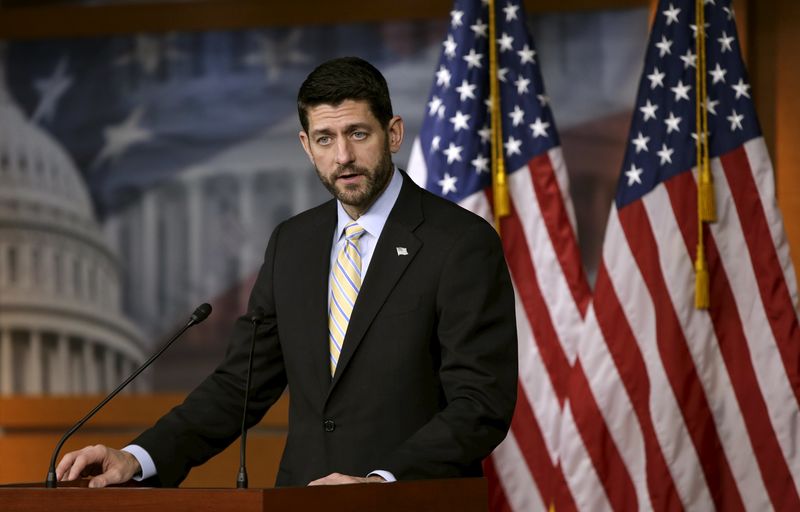By Richard Cowan and Susan Cornwell
WASHINGTON (Reuters) - Congressional negotiators on Tuesday wrapped up a sprawling deal to keep the U.S. government operating through next September, while setting new policies ranging from repealing a 40-year-old ban on oil exports to making many business tax breaks permanent, according to Republican lawmakers.
House of Representatives Speaker Paul Ryan told his rank-and-file Republicans that weeks of negotiations with Democrats had culminated in a deal that would eliminate any possibility of government shutdowns until at least next October, according to lawmakers present.
"That's my understanding, that there is agreement on both tax extenders and the omnibus" spending bill," Representative John Kline told reporters upon leaving a closed-door meeting of House Republicans.
Republican lawmakers added that Ryan will put the tax and spending bills to a vote on Thursday, just before they leave town for the rest of the year. The Senate is also expected to vote by week's end.
A senior Senate Democratic aide told Reuters that the legislative language was being reviewed to make sure it "reflects the negotiations."
Even some of the most conservative House Republicans, who leveled searing criticisms of former Speaker John Boehner before he resigned in October, left the meeting with Ryan upbeat.
Representative Steve King said he thought it would be difficult to pass the spending bill in the Republican-controlled House. But he told reporters that Ryan "got the best bargain that I think can be negotiated."
Representative Ann Wagner confirmed that in return for a repeal of the oil export ban, Democrats won temporary tax breaks to boost wind and solar development, an important priority for President Barack Obama in the aftermath of a Paris climate change deal that calls for significant reductions in carbon dioxide emissions from burning fossil fuels.
Other elements of the two bills that are expected to move through Congress in coming days, according to Republican lawmakers, include:
-A $650 billion package extending a series of tax breaks over 10 years, with $560 billion of the total in permanent extensions, including for business research and development. Many Democrats are expected to oppose this measure, saying it costs too much and is too heavily skewed toward corporate interests;
-Changes to a visa waiver program that will tighten travel restrictions on those who have been in Iraq and Syria;
-No "bailout" for Puerto Rico, which is experiencing fiscal difficulties;
-A two-year delay in both a medical device and "Cadillac tax" on high-cost healthcare plans. Representative Tom Cole said the tax package also would include a one-year delay in a tax on health insurance providers. He said it also extends for another year a provision limiting how much the government can spend on "risk corridors" protecting insurers against financial losses under Obama's landmark healthcare law.
Before Congress debates these long-term bills, it is expected on Wednesday to pass another stop-gap funding bill giving lawmakers time to complete their work. Without the temporary measure, federal funding for a range of government programs expires at midnight Wednesday.
Earlier on Tuesday, Representative Steny Hoyer, the second-ranking House Democrat, said he did not expect the deal to include a Republican plan to tighten screening of Syrians seeking refuge in the United States.
A congressional aide said negotiators were likely to nix a proposal to revise certain legal protections for bondholders, a provision that had been pushed by Reid partly to ease the bankruptcy of casino giant Caesars Entertainment's (O:CZR) operating unit.
